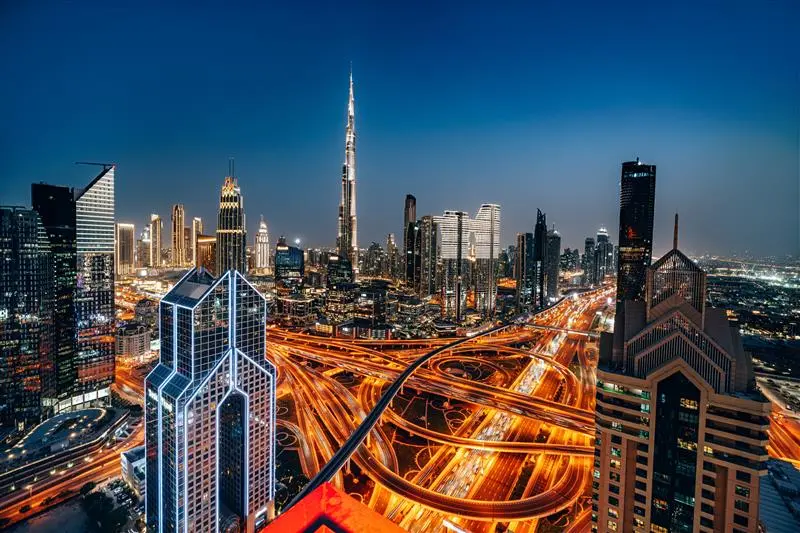As Dubai strengthens its position as a global capital for trade, innovation, and investment, Jefferies is once again convening leading corporates and investors from across Asia, the Middle East, and South America for its second annual GEMS (Global Emerging Markets) Conference, held November 24–25, 2025.
Following a successful debut in 2024, the conference has quickly established itself as one of the region’s most anticipated investor gatherings, offering a unique format of one-on-one meetings and focused discussions with C-Suite leaders from across emerging markets.
We sat down with Majed Al Mesmari, Managing Director and Head of MENA Investment Banking, and Walid Armaly, Managing Director, Co-Head MENA Equities, to discuss what is driving momentum across MENA and beyond, and how Jefferies’ growing presence in the region reflects its long-term commitment to clients in the world’s fastest-growing markets.
The GEMS Conference: Building Momentum
Last year marked Jefferies’ inaugural GEMS Conference in Dubai. What made it so successful, and what have you carried forward into this second edition?
Walid Armaly: It was the first emerging markets conference of its kind based in Dubai. The MENA conference calendar is very full, so we differentiated by focusing on emerging markets in a way that attracted a broader group of investors. This year we have built on that success by expanding the number of participating companies and international investors, while maintaining the one-on-one, high-quality meeting format that makes the event so valuable.
Majed Al Mesmari: Based on feedback from clients, Jefferies’ global equities sales franchise was a key differentiator. We pride ourselves on having one of the world’s largest and most connected equity sales teams, and our ability to engage not just generalist investors but also sector specialists has been a major factor in the conference’s success.
Dubai has become one of the world’s most dynamic business environments, driven by diversification, regulation, and innovation. What makes the city such a compelling backdrop for a discussion about emerging markets right now?
Majed: Dubai continues to attract high-net-worth individuals, entrepreneurs, and talented professionals from around the world. From a tax and regulatory perspective, it is obviously extremely attractive. However, when we speak with private equity firms, who are often the most discerning when it comes to capital deployment, they no longer view Dubai and the Gulf as capital-exporting regions but instead as destinations for investment. There are very few places globally that combine high growth and high returns without the typical emerging-market risks like geopolitical tensions, capital controls, or currency volatility.
Walid: The city has evolved from a transient business or tourist hub into a true home for families and global corporations alike. Visa reforms, social changes, and business-friendly policies have made it far easier to live and operate here. Many clients are now setting up regional headquarters that rival, and often surpass, their other more established global offices in scale and significance.
The MENA and Emerging Markets Outlook
Within MENA specifically, what themes or sectors stand out as most compelling for international investors heading into 2025?
Walid: One of the biggest themes has been population growth, particularly in the UAE, where we see the impact reflected through banks, real estate, utilities, and even transport companies. Across the region more broadly, reform and index-inclusion stories continue to drive engagement. Saudi Arabia’s ongoing social reforms and gradual relaxation of foreign ownership limits are particularly notable, while Bahrain and Oman are pursuing upgrades to Emerging Markets by the major index providers like MSCI and FTSE, which shows real proactivity from local markets to reach global investors.
There is also strong momentum around technology and innovation. The UAE is positioning itself as a regional hub for AI, with active partnership discussions and initiatives involving global leaders such as Microsoft, NVIDIA, and OpenAI. In Saudi Arabia, there is a growing focus on sports, entertainment, and esports, reflected in the role of the Public Investment Fund (PIF) of Saudi Arabia in a consortium that entered into a definitive agreement to take Electronic Arts (EA) private for $55 billion and the country’s expanding calendar of international events from golf to F1.
Emerging market equities have been described as one of the most mispriced asset classes globally. What factors are driving that valuation gap?
Majed: While some assets may appear mispriced, many MENA equities actually trade at a premium compared to global peers. That reflects the structural growth drivers Walid mentioned such as population expansion, reform momentum, and economic diversification.
The UAE–India and Asia Trade Corridor
The UAE–India trade corridor is expanding rapidly under CEPA and other frameworks. How do you see this shaping investment flows and corporate activity in the region? How is Dubai positioning itself as a bridge between MENA and Asia, particularly in capital markets and financial services?
Majed: It is no secret that the UAE, Saudi Arabia, Turkey and Egypt are all deepening engagement with the Global South, which is where much of the world’s growth and investment activity will take place in the coming decades. As trade and investment corridors strengthen, particularly between MENA and India, this region is emerging as a true connector between East and West. We are seeing the foundation of long-term partnerships for goods, services, and capital formation that will define the next phase of global growth and rival trade corridors in the Northern Hemisphere.
Strategic Alliances and Regional Growth
In September, Jefferies and SMBC announced a significant expansion of their Global Strategic Alliance, including 2.5 billion dollars in new credit facilities. How does this strengthen Jefferies’ presence in MENA?
Walid: The region values strong lending relationships, and large-scale banks with meaningful balance sheets tend to dominate corporate finance conversations. Having access to SMBC’s lending capabilities has opened doors to discussions where Jefferies can potentially play a meaningful role in future transactions.
Majed: Clients find the combination compelling, because it brings together a global advisory platform and a lending partnership through SMBC. Many of SMBC’s long-standing clients are now engaging with Jefferies in new ways. Given the scale of debt issuance in our region, with record levels each year, the alliance positions us well to support that continued growth.
A Long-Term Commitment to the Region
What does holding GEMS in Dubai signify for Jefferies’ long-term engagement in the region?
Walid: Jefferies has really invested significantly in the region. Just four years ago, we had three people on the ground. Today, we are a team of thirty, with Jefferies’ bankers based in Dubai and Abu Dhabi, and office space in Riyadh. Our competitors are not investing at the same pace or depth.
Our leadership is directly engaged, with our CEO Rich Handler and company President Brian Friedman visiting the region regularly, reflecting the firm’s conviction in the opportunity ahead. We are here to stay, and we are excited to support this region as it continues to evolve and grow from strength to strength.
Majed: Dubai has long been the most established and well-covered center for regional activity, but Riyadh is rapidly emerging and Abu Dhabi has clear ambitions of its own. There is often media focus on whether Dubai, Riyadh, or Abu Dhabi will become the dominant financial hub, but by portraying this as a rivalry or a zero-sum game, that framing misses the bigger picture. Each of these cities is developing in ways that complement one another and enhance the overall attractiveness of the region. The growth achieved by any one of them helps elevate MENA as a whole to a globally competitive position. For international companies, choosing to be in one center or another is not a sign of limited conviction elsewhere. It reflects the region’s depth, diversity, and collective potential. At Jefferies, we see that potential.




